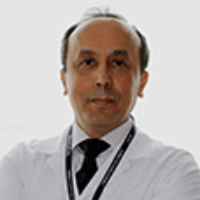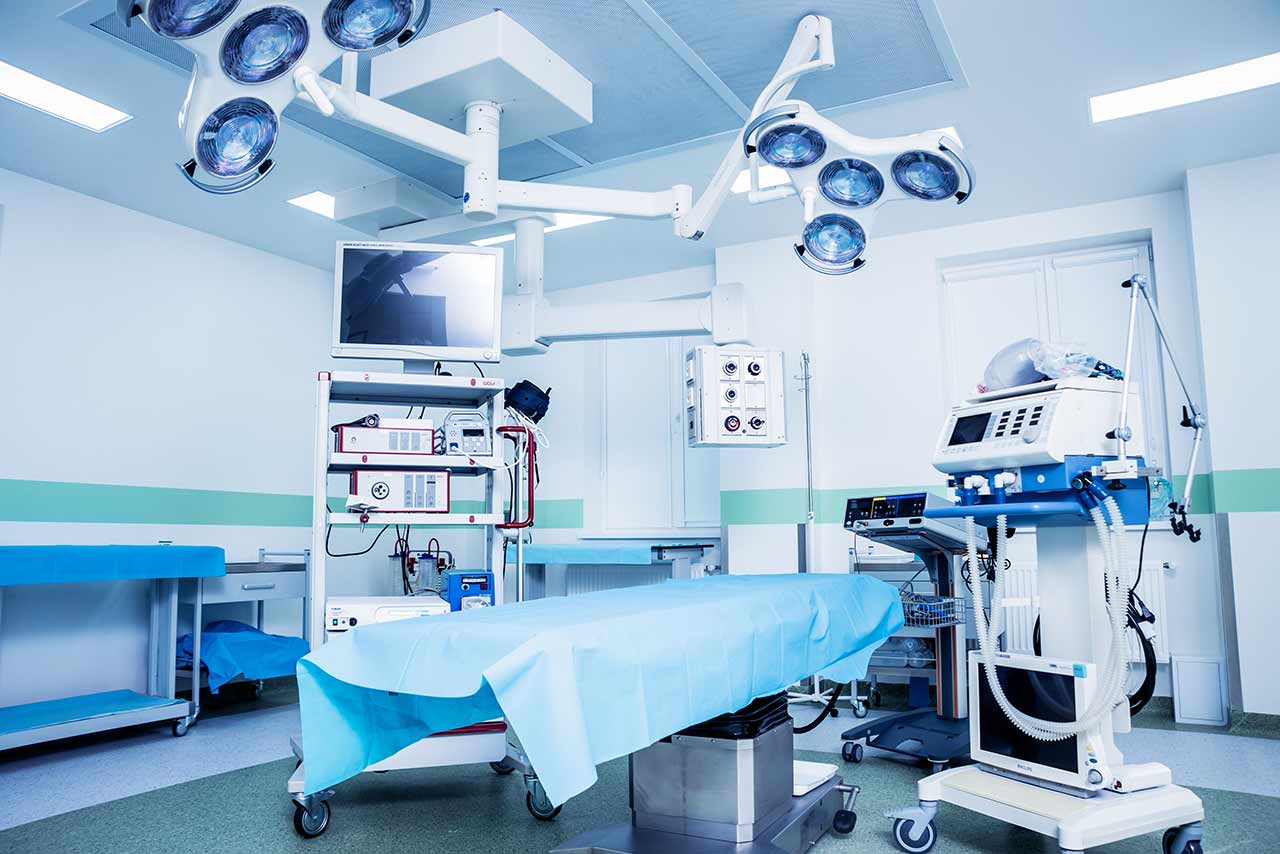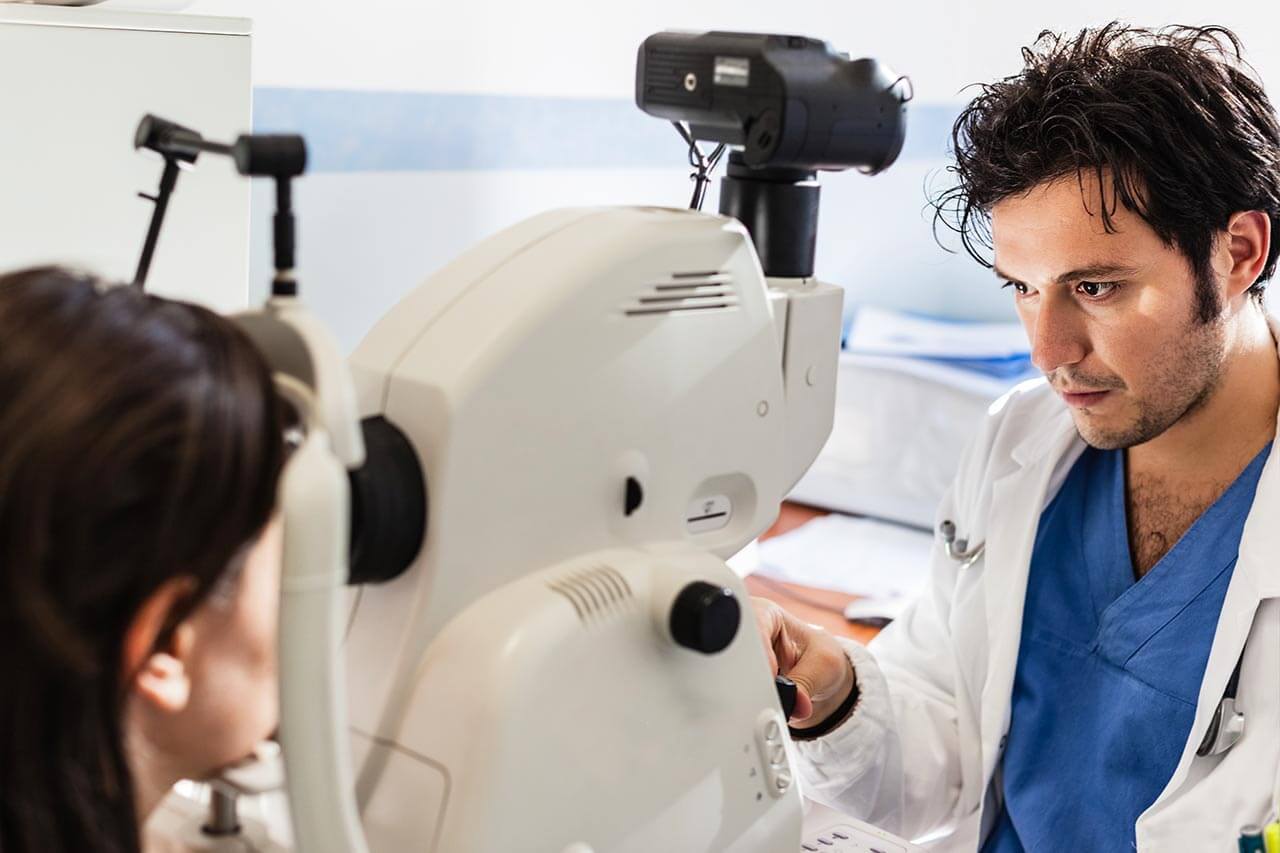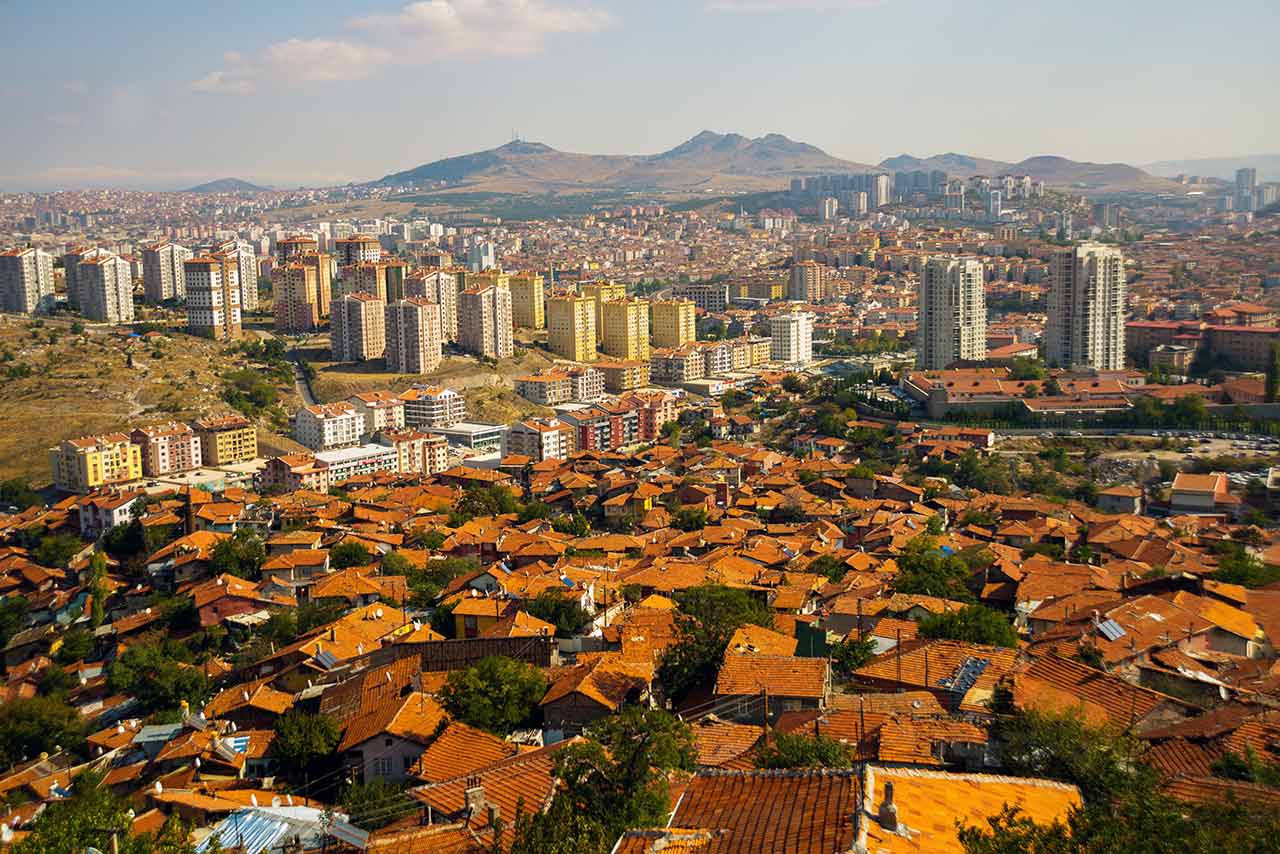
The program includes:
- Initial presentation in the clinic
- case history collection
- general clinical examination
- laboratory tests:
- complete blood count
- biochemical analysis of blood
- TSH-basal, fT3, fT4
- differential blood count
- inflammation indicators (CRP, ESR)
- indicators of blood coagulation
- abdominal ultrasound scan
- CT/MRI scans of the whole body
- needle biopsy of the bone marrow with histological:
- cytochemistry
- immunocytology
- cytogenetics (Philadelphia
chromosome detection) - molecular biology
- biopsy and histological examination of CSF
- examination by experts of:
- cardiology
- otolaryngology
- immunology
- ophthalmology
- registration in the European bone marrow donor base
- conducting high-dose chemotherapy
- allogeneic bone marrow transplantation from
unrelated donor - isolation by neutropenic precautions
- symptomatic treatment
- control examinations
- the cost of essential medicines and materials
- nursing services
- full hospital accommodation
- explanation of future recommendations
How program is carried out
During the first visit, the doctor will conduct a clinical examination and go through the results of the available diagnostic tests. After that, you will undergo the necessary additional examination, such as the assessment of liver and kidney function, ultrasound scan, CT scan and MRI.
Also, the doctor will conduct a bone marrow biopsy followed by cytological examination of the harvested material. This will help him to determine the histological features of your bone marrow (in particular, identify HLA system antigens) and select a suitable donor. The donor can be a family member or a person from the bone marrow registry. In the second case, the donor material is stored in a bone marrow bank.
Before the procedure, you will receive chemotherapy, if necessary in combination with radiation therapy. The course of chemo- or chemoradiation therapy lasts from 2 to 8 days.
The bone marrow transplant procedure is an intravenous infusion, i.e. the healthy bone marrow will be injected through a catheter, intravenously. You will stay in your room during the procedure. A bone marrow transplant is completely painless and does not require anesthesia.
During the period of healthy bone marrow engraftment, you will stay in a sterile ward. This is a necessary precaution because during this time your immune system is very weak and cannot withstand environmental pathogens. The risk of bleeding is also quite high, so you will be advised to avoid mechanical damage.
A relative or other close person may stay in the ward with you. You will not be allowed to go outside the department and leave your ward often. The rehabilitation period can last from 1 to 2 months.
When your complete blood count returns to normal, your doctor will schedule your discharge from the department. You will receive information about the rules that you will need to follow at home, the frequency and type of control examinations, and subsequent treatment measures. You will also receive a detailed medical report, which will reflect the entire course of treatment.
Required documents
- Medical records
- MRI/CT scan (not older than 3 months)
- Bone marrow biopsy results (if available)
Service
You may also book:
 BookingHealth Price from:
BookingHealth Price from:
About the department
The Department of Hematology and Bone Marrow Transplantation at the Memorial Ankara Hospital offers the full range of diagnostic and therapeutic services for patients with various diseases of the blood and hematopoietic system. The department's specialists successfully carry out autologous and allogeneic bone marrow transplants, which in some cases are the only effective methods for the treatment of hematological diseases. When performing the procedure, the doctors observe all current clinical protocols, as well as the standards of the JACIE European organization, which accredits clinics specializing in this type of treatment. The competent doctors of the department develop individual and the most effective treatment regimens for each patient, including drug therapy using innovative medicines, antibody therapy, targeted therapy, chemotherapy, radiation therapy and bone marrow transplantation. Medical care is provided by highly qualified doctors and nurses who underwent a strong academic background in the area of their specialization. They apply all their knowledge and experience, as well as the technical resources of the medical facility in order to cure patients with both simple common diseases and especially complex pathologies. The department is headed by Prof. Dr. med. Ferit Avcu.
The primary focus of the department's clinical practice is the treatment of blood malignancies. The department's doctors quite often admit patients with Hodgkin's lymphoma and non-Hodgkin's lymphomas for treatment. The first stage in the diagnostics of Hodgkin's lymphoma is a histological examination of the lymph node after its removal. This is followed by CT scanning and bone marrow biopsy. The treatment regimen is developed for each patient individually, taking into account the stage of the disease, the severity of its course, as well as prognostic factors. Chemotherapy and irradiation are enough for a complete cure at the initial stages of the disease, while the patients with advanced stages of cancer require particularly intensive treatment with a combination of several types of therapy. In the case of a recurrence of Hodgkin's lymphoma, the department's specialists resort to high-dose chemotherapy and autologous (patient's own) stem cell transplantation. Non-Hodgkin's lymphomas are also quite common in the department’s clinical practice. These include about 30 diseases, which differ in their nature, rate of progression and symptoms, and therefore the department's hematologists pay special attention to high-quality diagnostics, which necessarily includes immunohistochemistry, flow cytometry and molecular techniques. All subtypes of non-Hodgkin's lymphomas are treated with chemotherapy. In rare cases, it is possible to provide treatment only with antibiotics, without chemotherapy. The department's doctors have a wealth of experience and professional skills for the most accurate determination of the subtype of non-Hodgkin's lymphoma, which affects further treatment regimen.
The department's medical team also successfully treats patients with such malignant pathologies as multiple myeloma, leukemia, myelodysplastic syndrome, myeloproliferative diseases. In addition, the department admits patients with benign pathologies. The therapy of aplastic anemia is of particular interest to the department's doctors.
The department has an excellent reputation in bone marrow transplantation, which is the most effective method in the fight against malignant hematopoietic diseases, including multiple myeloma, lymphomas, acute and chronic leukemia. In some cases, bone marrow transplants are also used for the treatment of aplastic anemia. The department's specialists perform both autologous bone marrow transplantation (transplantation of the patient's own stem cells after their proper processing) and allogeneic transplantation (stem cell transplantation from related and unrelated donors). The department's doctors perform bone marrow transplantation using innovative technique, which does not require any surgical manipulations. The procedure involves the extraction of donor material using apheresis and its transplantation through the vascular access. Bone marrow cells have special biological properties, thanks to which they independently enter the bone marrow and begin the production of blood cells there. A decisive factor in the success of the procedure is the monitoring of the patient at the stage of activation of the transplanted bone marrow cells. During this period, the patient is at risk of developing infectious processes, anemia and bleeding, so he needs proper care. It is also crucial to prevent the rejection of the bone marrow. The department's doctors regularly demonstrate excellent results of bone marrow transplantation, because they have huge experience, strictly observe hygienic standards, and also have perfect technical infrastructure adapted for bone marrow transplantation.
The department's key clinical focuses include:
- Diagnostics and treatment of malignant hematopoietic diseases
- Hodgkin's lymphoma
- Non-Hodgkin's lymphomas
- Multiple myeloma
- Acute myeloid leukemia (AML)
- Acute lymphocytic leukemia (ALL)
- Chronic lymphocytic leukemia (CLL)
- Chronic myeloid leukemia (CML)
- Myelodysplastic syndromes (MDS)
- Myeloproliferative disorders
- Diagnostics and treatment of benign hematopoietic diseases
- Acquired and hereditary anemias
- Thalassemia
- Haemophilia
- Von Willebrand disease
- Blood clotting disorders (coagulopathy)
- Diagnostics and treatment of other blood diseases and diseases of the hematopoietic system
Curriculum vitae
Professional Career
- Since 2015 Chief Physician of the Department of Hematology and Bone Marrow Transplantation at the Memorial Ankara Hospital, Ankara, Turkey.
- 2002 - 2015 Work in the Department of Hematology and Bone Marrow Transplantation, as well as in the Stem Cell Research Laboratory, Gulhane Military Medical Academy, Ankara, Turkey.
- 1997 - 2002 Specialized training in Hematology and Bone Marrow Transplantation, Department of Hematology and Bone Marrow Transplantation, Gulhane Military Medical Academy, Ankara, Turkey.
- 1994 - 1995 Specialized training in Internal Medicine, Gulhane Military Medical Academy, Ankara, Turkey.
Higher Education
- 1981 - 1987 Study of Human Medicine, Faculty of Medicine, Gulhane Military Medical Academy, Ankara, Turkey.
Scientific Publications and Reports
- Author of 8 book chapters.
- More than 150 publications, 76 of which are in the international scientific journals.
- Reports at over 250 congresses and symposia in Turkey and abroad.
Memberships in Professional Societies
- Turkish Society of Hematology.
- International Bone Marrow Transplant Registry (IBMTR).
- European Society for Blood and Marrow Transplantation (EBMT).
Photo of the doctor: (c) Memorial Ankara Hospital
About hospital
The Memorial Ankara Hospital is one of the largest private medical complexes in the capital of Turkey, where patients can undergo top-class diagnostics and treatment in all fields of modern medicine. The hospital is part of the prestigious Memorial Healthcare Group. The doors of the medical facility were first opened in 2014, and since then its employees have been doing their best to maintain the credibility of the hospital both throughout the country and far beyond its borders. For exceptional medical service, the hospital was awarded the Joint Commission International (JCI) certificate, which is given only to the best medical centers around the world.
The hospital is located in a modern building with an area of 42,000 square meters. The medical facility has 230 beds for the accommodation of patients. It includes 63 specialized departments – each of them specializes in a particular medical field. The key focuses are ophthalmology, plastic surgery, cardiology, cardiac surgery, orthopedics and oncology.
The hospital includes 11 modern operating rooms. They use special LED lamps, which prevent thermal emission and comply with the international sterilization technologies. The hospital also has hybrid operating rooms, which are equipped for minimally invasive operations.
Special attention should be given to the medical and technical base of the medical complex. It includes state-of-the-art diagnostic devices for MRI, CT, PET-CT, as well as TrueBeam STx and Elekta Versa HD radiation therapy devices, and many other innovative systems, which guarantee the patient the most effective results and maximum comfort.
Naturally, the medical staff of the medical facility also plays a key role in the successful clinical practice. The health of the patients is in good hands of the highly qualified doctors who have comprehensive professional training, many years of experience and regularly demonstrate excellent treatment results. The responsive nursing staff provides patients with quality care. In addition, all the staff of the hospital show a friendly and respectful attitude towards the patients.
Photo: (c) depositphotos
Accommodation in hospital
Patients rooms
The patients of the Memorial Ankara Hospital live in cozy single rooms and luxury rooms. Each patient room has all the amenities for maximum comfort. The hospital also has specially equipped rooms to accommodate disabled patients. The patient rooms are equipped with all necessary furniture, TV, telephone, ensuite bathroom with shower and toilet. The patient rooms also have Wi-Fi. The rooms are designed in a pleasant light color scheme, while the large panoramic windows offer a beautiful view of the capital of Turkey.
Meals and Menus
The patient and the accompanying person are offered tasty and balanced three meals a day. If for some reason you do not eat all foods, you will be offered an individual menu. Please inform the medical staff about your food preferences prior to treatment.
Further details
Standard rooms include:
Accompanying person
During the inpatient program, the accompanying person can live with the patient in a patient room or a hotel of his choice. Our managers will help you choose the most suitable option.
Hotel
During an outpatient program, the patient can stay at the hotel of his choice. Our managers will help you choose the most suitable option.




